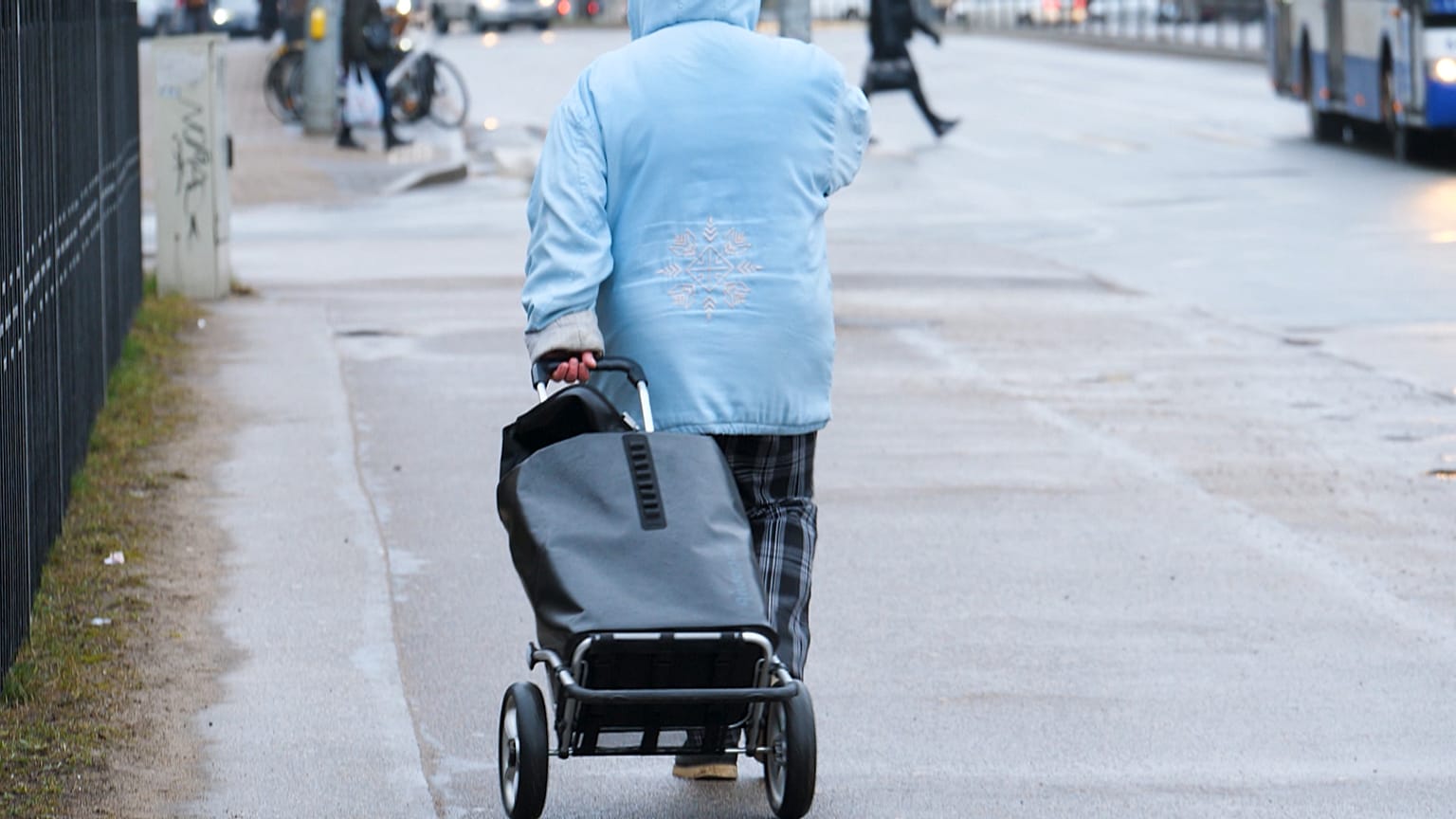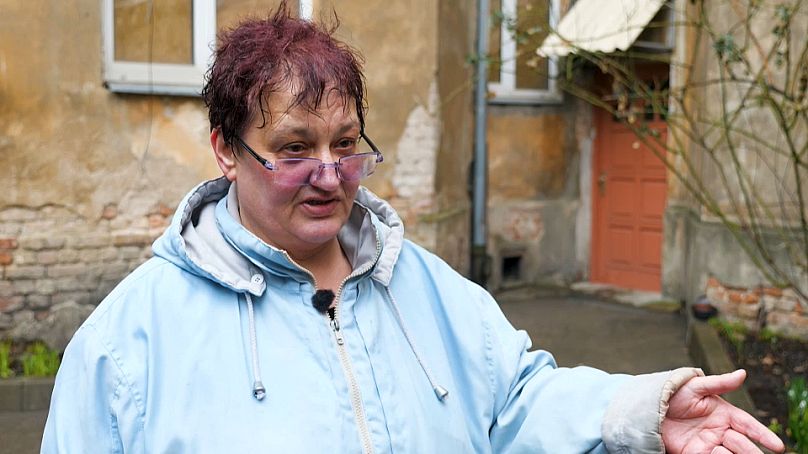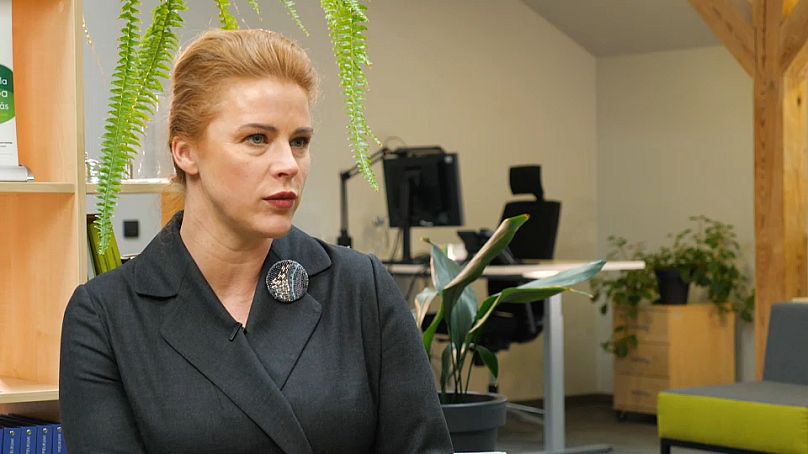The minimum wage has recently increased across Europe. In Latvia, it rose by 24% in 2023, the highest increase in the European Union. But is it enough to cope with the rising cost of living?
The minimum wage has recently increased across Europe. In Latvia, it rose by 24% in 2023, the highest increase in the European Union. But is it enough to cope with the rising cost of living?
 ADVERTISEMENT
ADVERTISEMENT
 ADVERTISEMENT
ADVERTISEMENT
To fight against in-work poverty, a new European directive requires member countries to ensure that their minimum wage is adequate. How is this determined, and what does it mean for workers? I went to Riga to meet with them.
The lowest paid do not feel the difference
In Latvia, the minimum wage increased from €500 to €620 per month in 2023. However, with an estimated inflation rate of 20% last year in the Baltic countries, Vizbulīte Horste, a mail carrier, doesn't really see a difference.
"I don't feel the increase in my salary at all," she says. "Prices have gone up a lot for everything, including food. Since I am with my husband, for now we can manage to pay the bills, but it's difficult. I wouldn't be able to survive if I were alone."
After discussions between trade unions, employers, and the government, no compromise was reached on a level for the minimum wage, so the decision was left to parliament.
Martins Svirskis, an economist for the Latvian trade unions, would have preferred a larger increase.
"We are happy that it was raised at all because the negotiations were quite hard," he says. "The average wage in recent years reached over €1,400. So a minimum exceeding €700 is something we are going for. "
The new directive proposes that member states use either 60% of the median wage or 50% of the average wage as a benchmark to establish a more balanced minimum wage. However, Latvia's minimum wage remains one of the lowest in Europe, where there are significant disparities between countries because of different labour conditions.
In Europe 60% of minimum wage earners are women
In Europe, 60% of minimum wage earners are women, like Aija Laizāne, a single mother and home carer who raises 17-year-old son alone and struggles to make ends meet.
"So, I have to pay 250 euros all told for this one-room apartment - for phone, gas, electricity, rent," she says. "My son is growing up, he needs clothes, shoes are expensive, clothes are expensive, there's school, and we have to pay for train transportation. That's why I'm looking for additional work."
Latvia, followed by other Eastern countries, has the highest proportion of low-wage workers in the EU. Often they're poorly qualified. Eduards Filippovs, an entrepreneur and chairman of an association for small businesses, the Business Union of Latvia, wants a non-taxable minimum wage, as well as clearer, more transparent social security contributions.
"Personally I had to rethink my business model because I cannot afford some temporary workers, and attract young people to work," he says. "Because the social security burden is too high for me."
Eduards supports the increase in the minimum wage, but believes that employers have not been adequately consulted in the decision-making process.
"We have to take into account other costs like taxes," he says. "There has to be the balance with the possibilities of how much the businesses can pay."
The unions' economic adviser put the emphasis on the importance of collective bargaining.
"We are asking for the government to implement sort of tax reliefs for different benefits that have been collectively negotiated, for healthcare expenses, for catering," Svirskis says. "And this year we are negotiating on education as well."
For example, the construction sector was able to negotiate a higher minimum wage, at €780 and hopes to reach €900 next year.
Finding a compromise on the adequate level of the minimum wage
So, how can a compromise be reached on the adequate level of the minimum wage? I spoke to the Welfare Minister in charge of labour, Evika Silina.
"It was absolutely clear that we should do something because our minimum wage was too low in comparison with the other Baltic States," she says. "We were historically dependent on Russian gas. And yes, our prices last year went much higher than in Western countries."
"The intention of the legislators last year was to go more or less for 45% of the average income of the Latvian people and it'll be around 45%, but not yet this year. That's why we actually need to probably discuss even more with our business partners, with our trade unions. Before next year, we have to be sure there will be a mutual consensus so we can go much, much farther.
"Business people are talking about a minimum amount of non-taxable payment. Before the non-taxable amount was the same as the minimum wage. Now it's a little bit different. I believe we will follow with discussions about this number as well."
Silina says that measures other than the minimum wage are also being taken to help the lowest paid
"One of the first tasks which I actually started," she says, "was for people who are living on lower income, they will have bigger social benefits where they can be helped with house payments and some other issues. So, the government is ready to also improve our workers’ skills because otherwise without those people who can work and earn the money and live due to their needs, it is not also good for the economical growth of our country. So there are many directions where we will work, and one of the most important is to promote and to invest in those people who are not already very young, but they can change their profession and try to learn something new."
Ensuring a decent standard of living for every European worker
Collective bargaining, economic impact analysis, and consideration of workers' needs are three tools highlighted by the agency Eurofound, so that each member state defines its minimum wage, ensuring a decent standard of living for every European worker, in all circumstances.




















